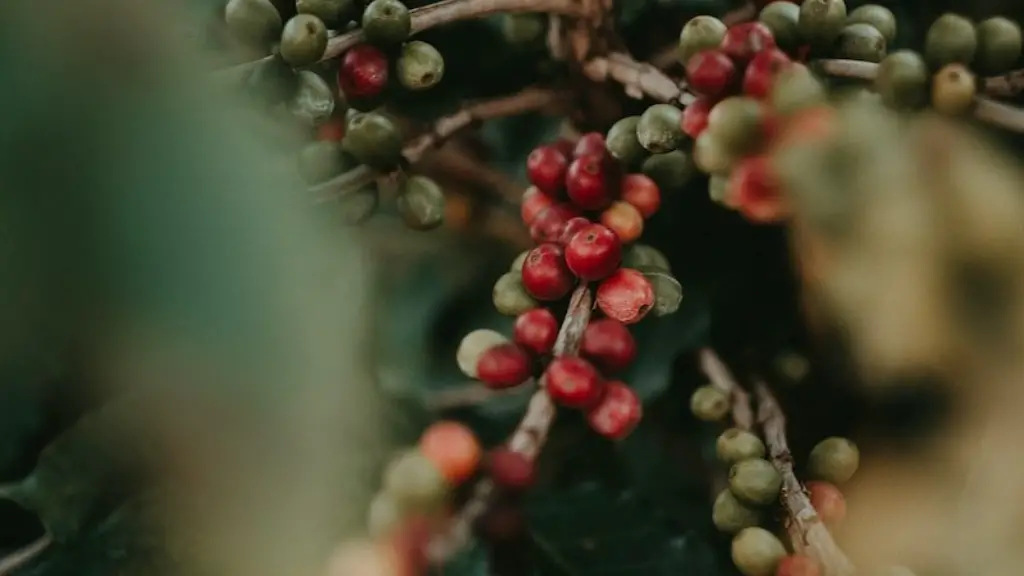Does Starbucks Do Fair Trade Coffee?
Starbucks Coffee Company has a long history of supporting farmers who produce ethically and responsibly sourced coffee. Fair trade is one of the main ways Starbucks Coffee has sought to align its business practices with socially conscious values.
In particular, Starbucks has focused on improving the sustainability of the coffee industry by delivering high-quality coffee, investing in ethical and environmentally friendly farming methods, and supporting farmers in the regions that grow their coffee beans.
Since 2004, Starbucks has been a member of Fair Trade International, the global standard of certification for fair trade products. This partnership has enabled the company to become the world’s largest buyer of fair trade certified coffee, helping to improve the lives of millions of farmers in over 30 countries for two decades.
Furthermore, Starbucks invests in Community Aid Programs to ensure farmers in these regions have access to long-term, sustainable sources of income. They also work with Fairtrade America to strengthen communities by investing in business plans, agricultural training, leadership development and educational support.
In addition, in 2020, Starbucks expanded their commitment to fair trade coffee through their new Responsible Sourcing Program. This program is designed to ensure that coffee is sourced responsibly and supports a living wage for farmers across its supply chain. Additionally, the company provides technical assistance, financial investment, and data-driven insights to enable farmers to increase efficiency, yields and quality.
On the other hand, some critics argue that Starbucks’ efforts do not go far enough. For example, while Starbucks has adopted a comprehensive fair trade policy, many of their coffee suppliers have been accused of creating an unfair working environment and exploiting vulnerable workers.
Additionally, ethical supply chain management and human rights remain largely unchecked in most of Starbucks’ supply chain. While the company has made significant efforts to support fair trade coffee farmers in Latin America, very little progress is being made to improve the labor and environmental conditions in other countries.
Does Starbucks Promote Ethically Sourced Coffee?
Starbucks has been actively committed to promoting ethically sourced coffee for two decades, investing millions of dollars towards improving the sustainability of their supply chain. Currently, Starbucks buys over 12 million pounds of fair trade certified coffee each year, supporting about 25,000 farmers in over 30 countries.
The company has also partnered with various organizations, including Fairtrade America, to ensure human and labor rights are respected throughout their supply chain. The company has also developed a Responsible Sourcing Program designed to assist farmers in accessing resources and support needed to achieve better yields and quality.
Furthermore, Starbucks has also established a Sustainable Coffee Challenge to increase the pool of sustainably sourced coffee. Through this challenge, Starbucks works with innovative companies, NGOs, and research institutions to develop innovative ways to promote sustainable coffee production.
Lastly, Starbucks has promoted ethical coffee through their store locations and the “Starbucks Share” program. The purpose of the program is to drive customer awareness of the impact of their coffee purchases and the need for sustainable sourcing.
What Does Fair Trade Coffee Mean for Starbucks?
For Starbucks, Fair Trade Coffee means investing in relationships with farmers and producers that ensure sustainable farming practices and access to resources. Starbucks has been able to use Fair Trade Coffee to improve the lives of coffee farmers through a long-term commitment that has seen the company invest in farmers from over 30 countries.
This has enabled farmers to produce coffee that is both high-quality and sustainably sourced. Additionally, the introduction of the Responsible Sourcing Program has enabled farmers to have improved access to resources and support needed to achieve better yields and quality.
In addition, Starbucks’ commitment to fair trade coffee has enabled them to build more transparent and traceable supply chains. This has helped the company to achieve their goal of producing coffee that is ethically sourced, responsibly grown, and traceable from farm to cup.
Lastly, Starbucks’ investment in ethical coffee has enabled the company to boost its reputation and gain an advantage over its competitors. As a result, Starbucks has been able to stand out from its competitors by establishing itself as a leader in ethical coffee sourcing.
What Alternatives Does Starbucks Offer?
In addition to its commitment to fair trade coffee, Starbucks offers alternatives. In particular, the company offers sustainable coffee such as certified Organic, Bird Friendly, and Shade Grown coffees.
Organic coffee is produced with natural fertilizers and is free of any synthetic plants, fertilizers, pesticides and herbicides. Bird Friendly coffee is produced under conditions that provide a greater diversity of bird habitats. Shade Grown coffee is produced in trees and is essential for preserving the environment and biodiversity of the land.
Furthermore, Starbucks has also explored sourcing their coffee from countries other than the traditional supply sources. The company has ventured into countries like Peru and Ethiopia that are known for producing high-quality coffee. Additionally, the company has increased its focus on sustainability practices like water conservation, ethical farming, and recycling.
Lastly, Starbucks is a member of the Sustainable Agriculture Network (SAN), which works to ensure that farmers have access to resources, education and support needed to sustainably produce and market environmentally and socially responsible products.
Conclusion
Overall, Starbucks is committed to offering ethically sourced and sustainable coffee. The company works in partnership with organizations, NGOs and research institutions to develop innovative ways to promote sustainable production and traceable supply chains. Additionally, the company also offers Coffee and espresso alternative sourcing methods, such as Organic, Bird Friendly, and Shade Grown coffees. As a leader in ethical coffee sourcing, Starbucks has been able to benefit from boosting its reputation, while also helping to improve the lives of farmers in over 30 countries.





